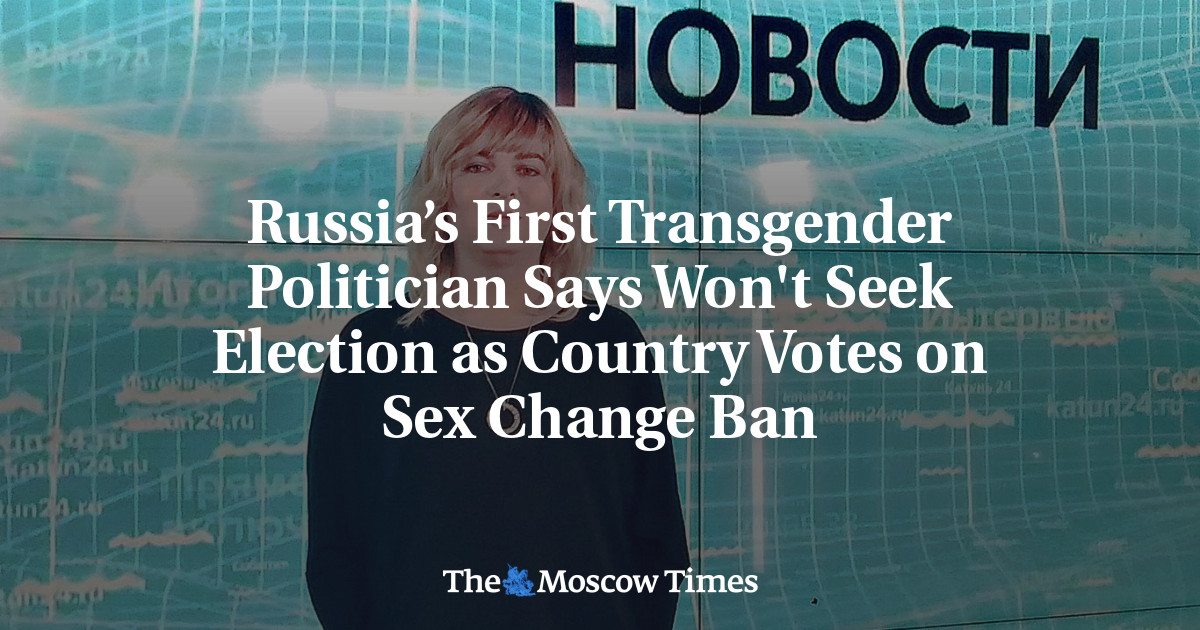
Russia’s first transgender politician announced Monday that she will not run in this year’s upcoming gubernatorial elections as federal lawmakers pursue a ban on legal or surgical sex changes.
Yulia Alyoshina, the former head of the Civic Initiative party in Siberia’s Altai region, had been nominated as her party’s candidate for the regional governor elections to be held in September. However, she only received 19 signatures from municipal deputies and village heads out of the 502 that she needed to be allowed onto the ballot.
“I was told by municipal deputies and village heads that the [gender reassignment ban] bill was being considered and that they couldn’t give me their signatures,” Alyoshina told The Moscow Times by phone.
“They told me: ’How can we publicly support a transgender person if the State Duma prohibits transgender people in Russia?” Alyoshina said.
“By putting our signatures in your support, we will go against the country’s policy, and we have families and children, we don’t want to fall under repression,” Alyoshina quoted the deputies as telling her.
Russian lawmakers approved last month in its first reading the bill that bans “medical interventions aimed at changing the sex of a person” and “the state registration of a change of gender without an operation.”
The bill is the latest in a series of socially conservative laws and initiatives pursued by Russian officials in recent years as the Kremlin promotes what it calls “traditional values.”
Last year, Putin signed a law banning the “propaganda” of LGBT relationships and values toward all ages, effectively prohibiting public displays of non-heterosexual identities.
According to Alyoshina, many municipal deputies chose not to publicly support her out of fears of being accused of spreading “LGBT propaganda” or “propaganda” of gender reassignment, which would put them at risk of a fine of up to 400,000 rubles ($4,416).
“This is a discriminatory law because any information and mention can be considered propaganda. The wording of the law is very vague,” Alyoshina, who is also a lawyer, told The Moscow Times.
Alyoshina, who is one of the few transgender public figures remaining in Russia, resigned from politics last year after the “LGBT propaganda” ban was passed, but made her political comeback in 2023.
Alyoshina said she was weighing “various options” for her future, but said she would wait for the passing of the gender reassignment law, which must now pass its second and third readings in the State Duma as well as a single reading in the upper-house Federation Council before it can be signed into law by Putin.
“I’m not ready to dive into [my future plans] until the legislation is passed,” she said.